Velvet antler harvest
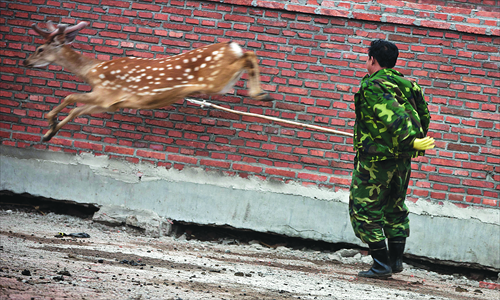
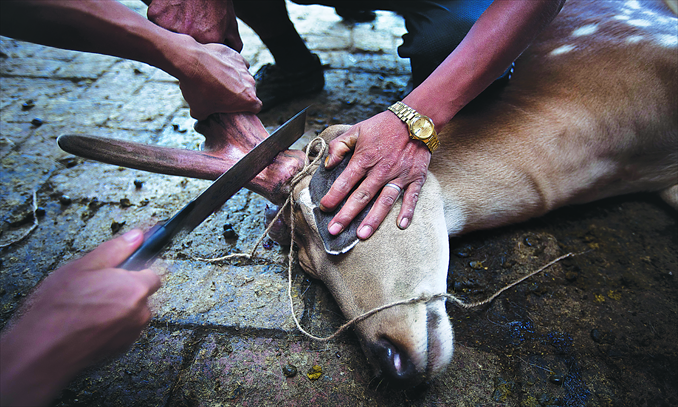
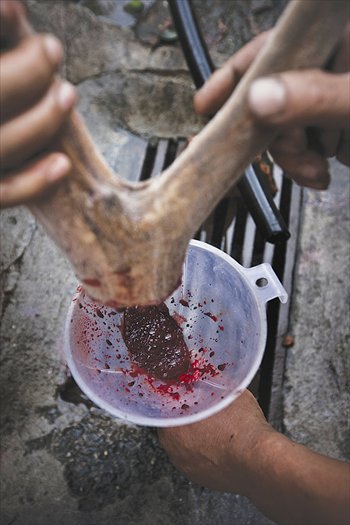
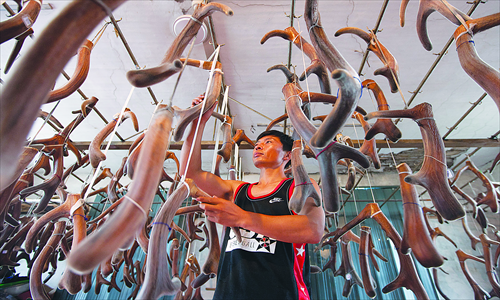
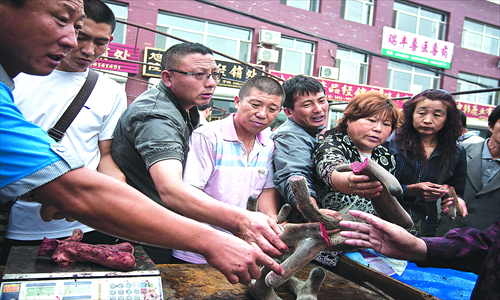
At 4:30 am on July 28, Liu Guijun, 48, hefts a spear tipped with anesthetic in his gloved hand as he walks into a pen of Chinese spotted deer. The busy season has begun for the sale of antlers and Liu must start his bloody mission once again.
Liu, from Dongfeng county, Northeast China's Liaoning Province, has specialized in collecting velvet antlers for 20 years, Shanghai-based Oriental Morning Post recently reported.
According to traditional Chinese medicine (TCM), velvet antlers can help sustain marrow and blood while also boosting kidney function. Velvet refers to when antlers are in a cartilaginous state before solidifying into bone. They are collected over the months of June and July as toward the end of the summer, before they become bone and lose their medicinal value.
After being jabbed, it takes five minutes for the anesthetic to make its way through the deer's body and for it to fall down. Liu then works quickly: cutting off the antler and treating the wound to reduce inflammation and stop the bleeding. However, due to allergies or improper treatment, some deer never wake up from their sleep, the newspaper said.
The farm Liu works for has more than 2,600 spotted deer. After boiling and extraction, the dried sliced antlers can fetch 7 yuan ($1.1) a gram.
In China, wild spotted deer enjoy very strict protection. However, deer in captivity can have their antlers, horns, fetuses and bones used for medical substances, but cannot be used for food or dietary supplements.
Like bear bile, the use of antlers has faced its share of trouble. Animal protectors denounce the practice as cruel and say it should be banned. Others argue that antlers help develop TCM and that restrictions on their use should be lifted.
Huo Yushu, from the Health Science Center at the University of Texas, defends the practice, saying the use of anesthetic relieves the pain that the deer suffer. Huo told the Oriental Morning Post that too many restrictions would dampen deer farmers' enthusiasm and reduce the species' numbers.
Zhang Xiaohai, director of External Affairs China for Animals Asia Foundation, disagrees. "Lifting restrictions would only stimulate consumption. The illegal poaching of wild deer would soar, which would be a disaster for them in the wild," Zhang told the Global Times on Monday.
Global Times